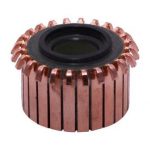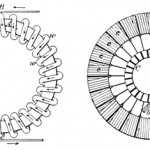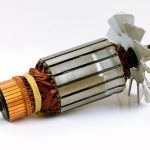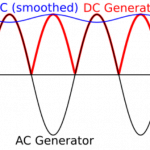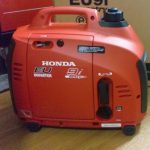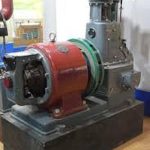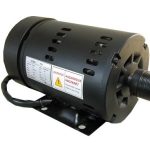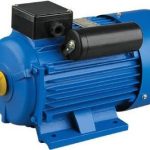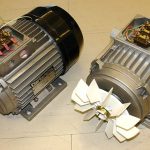An electrical generator is one kind of machine, used to alter energy from supplied mechanical form to electrical form. There are different kinds of generators available in the market and the classification of generators can be done depending on the output received. The output of any machine is AC or alternating current whether it is direct current (DC) or AC generator. Thus, in DC generator a device is necessary to change the current from alternating to … [Read more...]
Armature Winding – Definition, Classification & Uses
Truly, for the creation of a captivating field, a winding is required. This winding is associated with many titles based upon the point where it is provided. It is selected as a field winding if the winding is designed on the field poles. Likewise, it is defined as an armature winding if it is applied upon the focus. The winding is required for the creation of flux. This flux which in turn qualified for the creation of stability that allows needed twist … [Read more...]
Armature – Definition, Construction & Speed Control
The armature is a part of the motor that plays an important role in its operation. It is wound with a number of coils around it that forms a magnetic circuit. This circuit is responsible for the production of flux which in turn develops the required torque. This is the reason why it is considered as the heart of any rotating device because it is the source for the production of flux in any machine. So, let us discuss in detail about the importance of … [Read more...]
Contrast Between AC and DC Generator
The rotating machines function on the same principle of electromagnetic induction those are the motor and the generator. Even though the principle is the same their the output they deliver differs due to the operational difference. This difference in operation is important for the machines to be classified as either a motor or a generator. Similarly, the individual machines can also be classified as ac or dc typed depending on the input and output they … [Read more...]
AC Generator – Functions, Advantages & Purposes
An Electrical Generator is a machine that converts mechanical energy into electrical energy. This machine is further classified into two other kinds based on the power supply i,e ac and dc. The basic difference name a generator as an ac or dc is its input power supply. If the supply to the machine is single directional then it is Dc and it is vice-versa if it is alternating. The internal operation differs with this input supply. Let us discuss in detail … [Read more...]
DC Generator – Construction, Working & Applications
An electrical generator is a machine that converts mechanical energy into electrical energy. It works on the principle of electromagnetic energy conversion. When a mechanical domain is given to the machine it develops a magnetic field that is further converted into electrical energy. Initially, mechanical energy to the machine is given by a prime mover. Due to this input current passes through the windings which develop the magnetic field. This magnetic … [Read more...]
Slip Ring Induction Motor – Working & Speed Control
The name itself suggests us on what principle it works. Induction Motor(IM) operates on the induction type principle where the current from primary winding is transferred to the secondary winding. It operates similar to that of a transformer but the difference is that IM is a rotating machine and Transformer is a stationary machine. This induction type rotating machines further classified into different types based on its construction. Different … [Read more...]
Classification of Single-Phase Induction Motor with Applications
The steps began for the introduction of induction motor in the year 1892. Earlier it was made to run under 60 HZ power supply in 1893. This was made practically possible by Westinghouse. Later investigations have been conducted to work these type of motors under two-phase supply. The multi-phase supply produced much better advantages than single-phase. The disadvantage of one-phase is, it cannot self-start while the three-phase motor can self-start. The … [Read more...]
Single Phase Induction Motor – Function and Uses
The operation of the Single-phase induction motor can be done through a single power phase and used in domestic as well as industries. The main characteristic of this kind of motor is the same as that of a three-phase. This motor starts automatically (self) but a 1-phase Induction motor will not start automatically because it cannot expand starting torque. 3-phase expands starting torque through a rotating magnetic field. An AC motor starts through an … [Read more...]
What is an Induction Motor – Principle, Working & Types
Induction motor is a machine that simply operates on the induction type principle. It was invented by the scientist Tesla who earlier conducted several experiments on the working of the alternating current systems. Later, several experiments have been done to improve the performance of this type. This led to the inventions of the induction type of generator. But this type has limited access due to some of the cons than the pros of this generator. However, … [Read more...]
